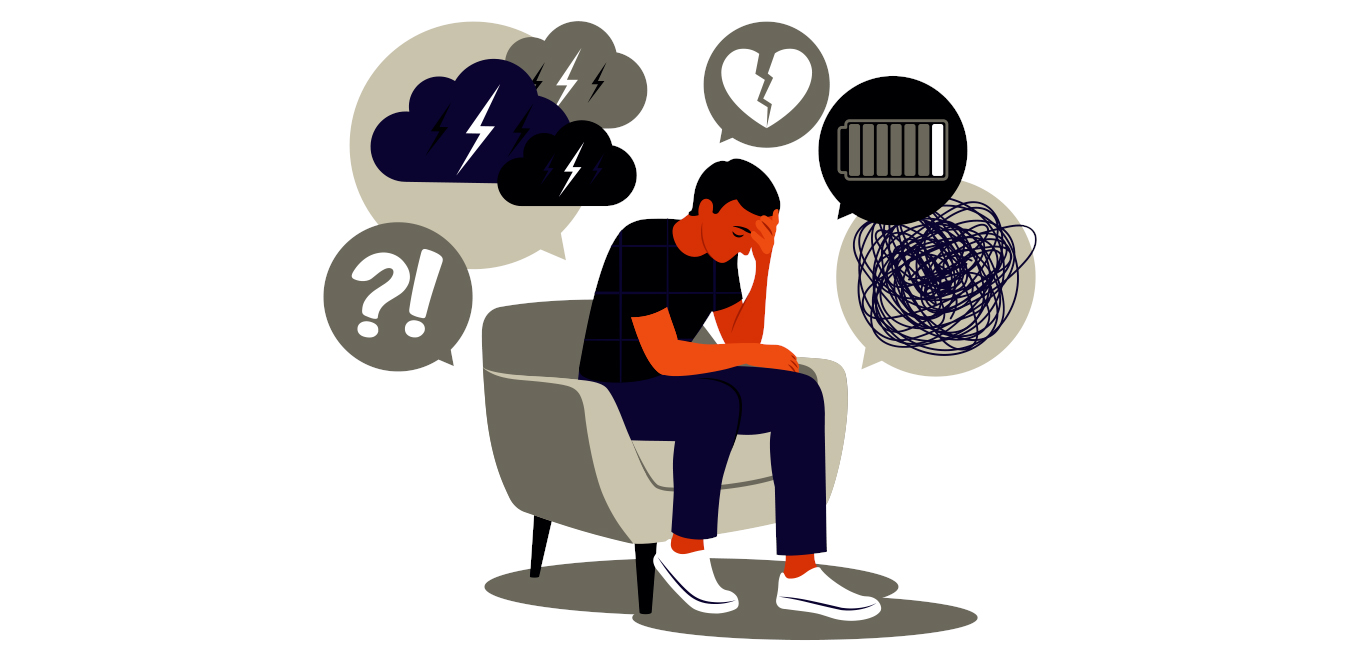
Stress is a natural part of life and can sometimes act as a motivating force. However, in tough times, our minds and bodies can go into survival mode.
“In this survival mode, we often find ourselves struggling to perform even the simplest of daily tasks, feeling as though each challenge is a daunting mountain to climb,” says Dr Somnath C P, consultant psychiatrist at Healing Minds Clinic, Kochi. Recognising the signs that one has entered this mode is the first step towards regaining control and finding your way back to a more balanced and fulfilling life.
Difference between healthy stress and survival mode stress
Rakshitha Ghadge, psychologist at YourDOST, an online counselling and emotional wellness coach in Bengaluru, says that healthy stress can lead our bodies to release adrenaline. This can help us stay focused, be more energetic, push us into doing things, and most of all, help us take on challenges that we would not otherwise take, ultimately helping us return to a comfort zone.
However, chronic stress, which is constant and persists over an extended period, can be debilitating and overwhelming. It can affect both our physical and psychological well-being.
Signs you are in survival mode
Dr Somnath emphasises that when individuals face stressful situations and enter survival mode, their mindset undergoes a profound transformation. Feelings of utter helplessness creep in, making them believe that no one can rescue them from this mental state. Hopelessness takes hold, putting an end to hope. Negative cognitions, including feelings of worthlessness, start to dominate their thoughts. Dr Somnath says, “In survival mode, one loses not only self-esteem but also the ability to find joy in life.”
Survival mode affects decision making
According to Dr Somanath, when someone is in survival mode, decision-making becomes a challenge. Analyzing situations and making clear choices become difficult. Long-term planning becomes nearly impossible as the focus is on getting through each day, and future thinking becomes a luxury. “As a result, not only does decision-making suffer, but one’s judgement, planning, and time management skills also take a hit.”
Ghadge provides a list of key indicators to help recognize survival mode.
Emotional signs
- Feeling overwhelmed
- Difficulty concentrating or focusing
- Irritability or anger
- Trouble sleeping
- Isolation or loneliness
- Exhaustion or burnout
- Struggling with negative thoughts
- Frustration and fatigue
- Procrastination
- Irrational outbursts
- Withdrawing from social activities
- Poor eating habits
- Neglecting self-care
- Increased alcohol consumption
Physiological signs
- Aches and pains
- Sleep disturbances
- Muscle tension or jaw clenching (teeth grinding)
- Stomach or digestive issues
- Bloating
- High blood pressure
- Headaches
Ways to manage and prevent survival mode
Ghadge says, “It is important to first acknowledge that one might be in survival mode and identify the stressors leading to it. Labelling them can help give one an insight on how to cope.” She suggests practising positive affirmation to cope with the inner critic as well as practising breathing or grounding exercises to help them be in the present.
Seeking support and relief
Dr Somnath says that recovery from survival mode varies from person to person. While some may need medical assistance, such as medications, others with resilience may find relief through psychological methods. “Speaking to a close and empathetic friend or family member can be surprisingly helpful. This isn’t about professional therapy but sharing your problems with someone who truly listens and understands,” he suggests. Sometimes, just talking to the right person can provide much-needed relief.
Taking time for self-care
Taking time for oneself is essential. One should engage in activities that bring one comfort and pleasure, even if it is just for half an hour. We should surround ourselves with supportive friends or listen to motivational speeches to gather the courage to face the current situation. These small moments can make a difference.
Exploring mind-body techniques
Exploring various techniques like meditation, yoga, and breathing exercises (pranayama) can offer significant relief. These practices should be pursued regularly to maximise their benefits. “Our choice among these methods should align with our personal disposition and preferences,” says Dr Somnath. Some may find solace in prayer, while others thrive in the company of friends. In more severe cases, seeking medical support or adopting a specific diet may also prove helpful in reducing stress.
Cognitive behavioural therapy for reshaping thoughts
Cognitive behavioural therapy (CBT) offers valuable assistance in reshaping thought processes. It targets maladaptive thinking patterns and aims to replace them with more rational and positive thoughts. In challenging times, individuals often fall prey to cognitive errors, such as magnifying small issues or adopting a negative self-image based on minor setbacks. CBT helps correct these distortions, but it is important to understand that this process may take time and regular collaboration with a therapist.
















